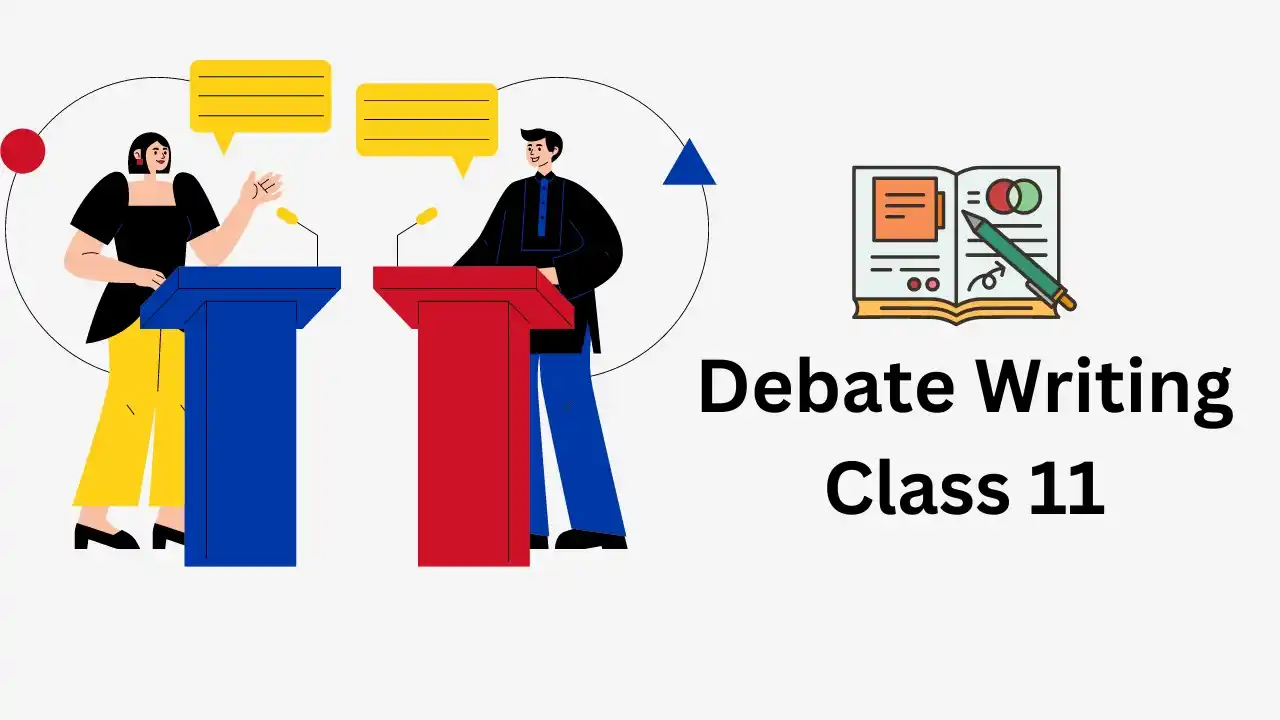Debate Writing Class 11: Format, Examples, Topics & Techniques
Debate writing is a vital skill for Class 11 students, helping to sharpen logic, boost communication, and build confidence. Whether you’re preparing for exams or school debates, mastering the structure, tone, and delivery is key. This comprehensive guide covers the debate writing format for Class 11, including updated examples, trending topics, expert tips, and techniques to help you write and speak persuasively.
📌 Debate Writing Format for Class 11
A successful debate follows a structured approach. Here’s a clear format Class 11 students should use:
✅ Structure:
- Introduction – Present the topic and your stance (for/against).
- Arguments – Provide 2–3 logical points with evidence.
- Counterarguments – Acknowledge and refute the opposing view.
- Conclusion – End with a persuasive summary of your position.
🧾 Sample Opening Statement:
“Good morning everyone. Today, I firmly stand for/against the motion – [Topic]. Let me explain why…”
🧠 Debate Writing Examples for Class 11
Topic: Social Media – A Boon or Bane?
For the Motion:
- Encourages global communication and awareness
- Enables small businesses through digital marketing
- Provides instant access to information and learning
Against the Motion:
- Leads to distraction and addiction, especially among teens
- Fuels the spread of misinformation
- Raises concerns about privacy and data safety
🔥 Popular Debate Topics for Class 11
Use these relevant and thought-provoking topics for practice:
- Online Learning vs Traditional Classroom
- Is Artificial Intelligence a Threat to Jobs?
- Uniforms in Schools: Yes or No?
- Climate Change Action: Too Little, Too Late?
- Should Junk Food Be Banned in Schools?
✍️ Debate Writing Tips for Class 11
To craft an effective debate, keep these best practices in mind:
- Research Well: Use credible sources to support your points.
- Stay Structured: Maintain a logical flow of introduction → arguments → rebuttals → conclusion.
- Use Persuasive Language: Appeal to both logic and emotion.
- Be Confident: Maintain a strong voice, eye contact, and clear articulation.
- Anticipate Rebuttals: Think about what the opposition might say—and counter it.
🧩 Debate Writing Structure Breakdown
| Section | Purpose |
| Introduction | Hook the audience and state your position |
| Main Points | Present clear arguments with evidence |
| Counterpoints | Acknowledge and refute opposing arguments |
| Conclusion | Recap and reinforce your stance confidently |
📚 Class 11 Debate Sample – Homework Should Be Banned
For the Motion:
- Excessive homework causes student stress and burnout
- Limits time for sports and creative activities
Against the Motion:
- Reinforces what’s taught in class
- Encourages time management and responsibility
🧪 Exercises for Practice
Boost your skills with these practice tasks:
- Write a debate on “The Impact of Social Media on Teenagers”
- Argue for/against “Are Exams the Best Way to Measure Intelligence?”
- Deliver a speech on “Should School Start Later for Teenagers?”
🎯 Techniques to Win a Debate
Make your arguments more impactful with these techniques:
- Rhetorical Questions – Engage your audience
- Facts & Stats – Add credibility to your claims
- Repetition & Pauses – Emphasize key points
- Emotional Appeal – Connect with listeners when appropriate
📘 Final Guide: How to Master Debate Writing
- Choose a compelling topic
- Build strong, evidence-based points
- Structure your speech logically
- Practice delivery for confidence and clarity
- Prepare to rebut counterarguments smoothly
📝 Keep Practicing
Debate writing is a skill that improves with regular effort. To excel:
- Watch professional debates on YouTube or TV
- Join school or online debate competitions
- Practice writing and presenting arguments on current issues
By following this optimized structure and applying these tips, you’ll not only impress in exams but also build a lifelong communication skill. Keep practicing and you’ll become a confident, persuasive debater in no time!
Acknowledgement For Project File
I would like to express my heartfelt gratitude to all those who supported me throughout the completion of this project. My sincere thanks to my guide and mentor for their invaluable guidance and encouragement. I appreciate the assistance of my classmates, who provided insights and collaborated effectively. Special thanks to my family for their unwavering support and motivation. This project file would not have been possible without their contributions. The knowledge gained and the experience shared during this process have been invaluable, and I am grateful to everyone who played a role in this journey.






[…] Debate Writing Class 11 […]